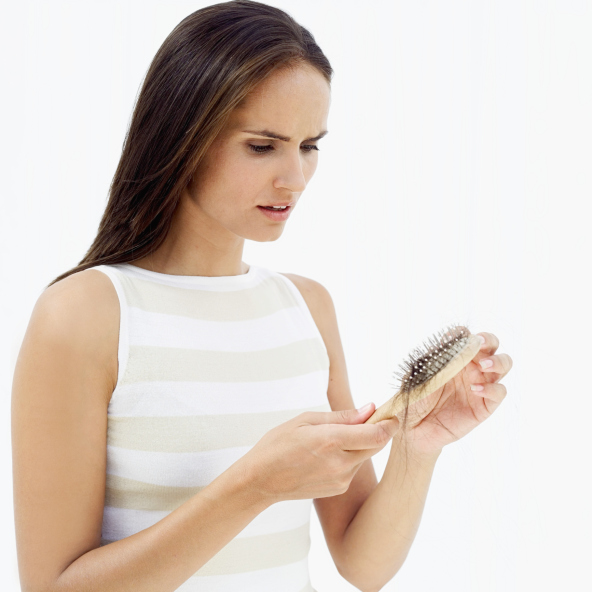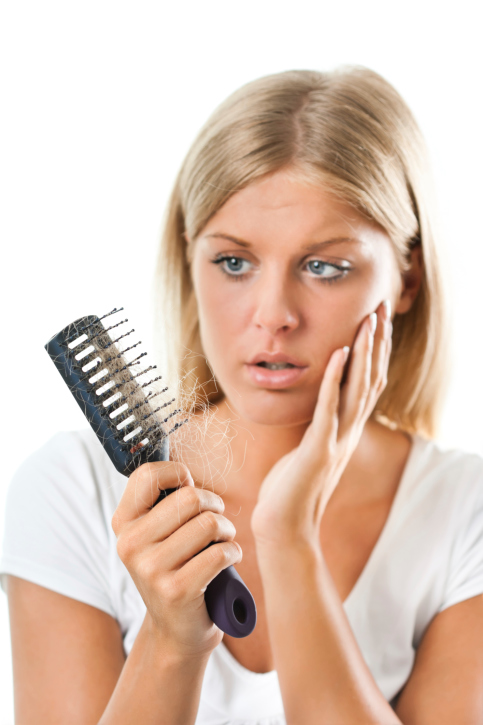Hair fall is not just a cosmetic condition but a psychologically distressing problem as well. Fifty-eight percent of the male population aged 30-50 years suffers from Androgenetic Alopecia, the most common type of hair loss caused due to genetic factors.
While losing 90-100 strands of hair a day is normal, losing more than this means your hair needs immediate attention.
Here are 6 reasons why you may be experiencing hair fall:
-
1. Age
Hair loss has a direct relation with aging. As you grow older the rate of hair growth decreases accompanied by hair thinning and pigment reduction.
This change is observed as people start attaining the age of 30-35. The hair weakens, as the pigment fades, making the hair look grey or white. Also, the follicles stop growing newer strands of hair.
Age-specific prevalence of hair loss :
• 18—29 years: 16%
• 40—49 years: 53% -
2. Genes
Androgenetic Alopecia: Androgenetic Alopecia (commonly known as male pattern hair loss) is gene-related hair loss, which affects fifty-eight percent of the Indian male population aged 30-50 years. Genes also contribute to the greying of hair. Also, reduction in the thickness of the hair is dependent on genes
-
3. Medical Conditions
-
Some medical conditions may also be responsible for hair loss. Here are some diseases that can cause hair loss:
Hypothyroidism: Hypothyroidism is known to be associated with diffuse hair loss , the underlying cause being the deficiency of zinc, which is also a standalone factor responsible for hair loss.
Skin diseases/infections: Different scalp diseases and infections including scalp pruritus (sensitive or itchy scalp) and scalp lesions have also been found to be associated with hair loss.
Diabetes: People living with diabetes report itching and hair loss in the long term.
-
4. Deficiency of micronutrients:
Deficiency of essential micronutrients such as proteins, vitamins, zinc, fatty acids and iron can be an underlying cause of hair loss.
For healthy hair growth, one must maintain a healthy diet consisting of protein-rich foods such as fish and eggs, vitamin-rich foods such as green leafy vegetables and carrots and dry fruits such as walnuts. Some calories are also necessary but not through food containing a lot of fat. Also, each of this should not be consumed in excess but in regulated amounts.
-
5. Stress
Stress, as suggested by many studies, has been implicated as one of the causes of conditions associated with hair loss including telogen effluvium and androgenetic alopecia. As studies found, stress leads to the stimulation of growth-inhibitory catagen-inducing and hair-damaging pro-inflammatory effects.
Leading a happy and stress free life is your best insurance against hair fall. Studies say that stress that causes one to lose sleep, or a change in diet affects hormones influencing hair colour and growth. As a result, an increase in hair fall and greying of hair occurs.
-
6. Lifestyle-related factors
Researchers have linked different lifestyle-related factors with the prevalence of hair loss. Listed here are some of them:
• Long sleep duration
• High levels of stress
• Positive smoking history
• Lack of exercise
• Hypertension
These are some of the major reasons for hair fall, and awareness helps you deal with it better. You can look after your hair well by giving it five extra minutes of care every day.


















